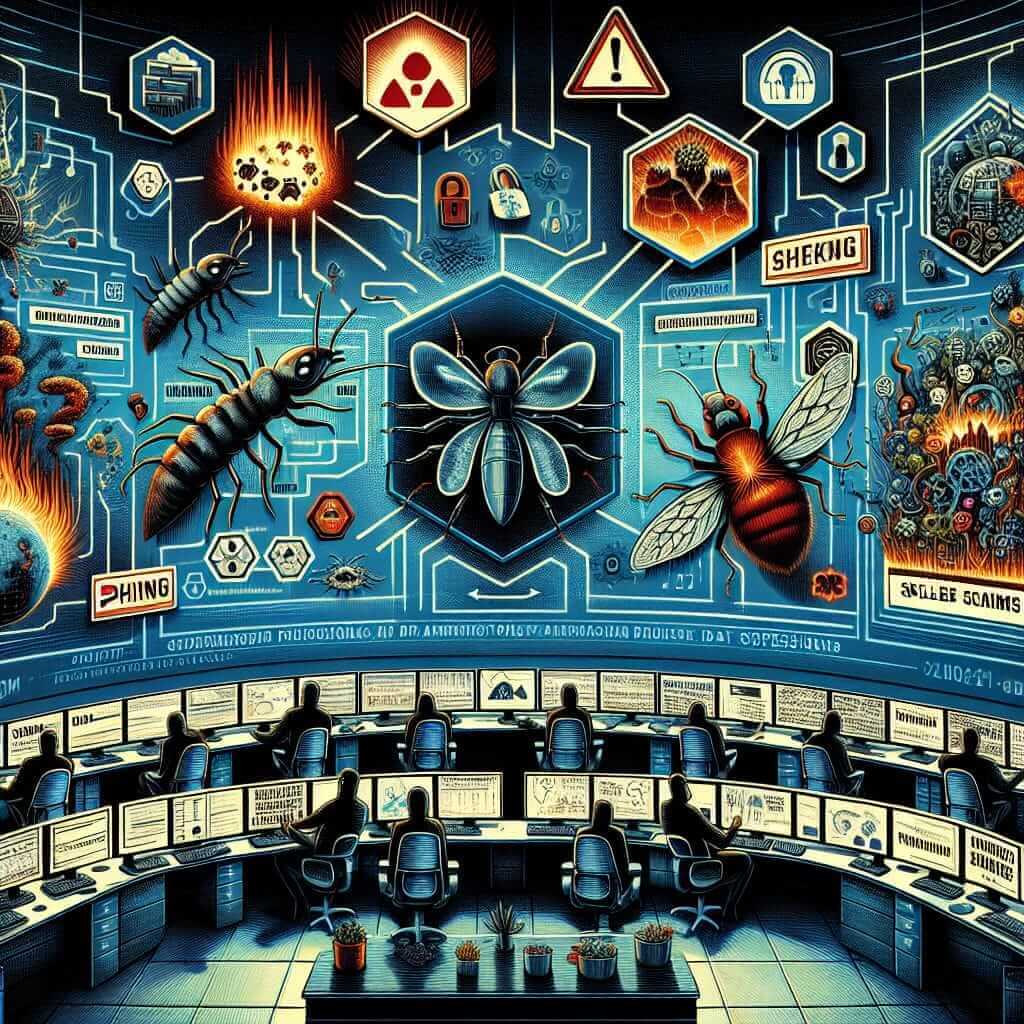The IELTS Reading exam is a crucial part of the IELTS test, challenging students with a wide range of topics. One of the topics that has gained prominence recently is “What are the challenges of managing global cybersecurity threats?”. This topic is timely and relevant given the increasing number of cyber incidents reported worldwide. In this article, not only will you be provided with a sample reading exercise on this topic, but you’ll also gain insights into the kinds of questions and vocabulary that are commonly used in the IELTS Reading test.
Reading Passage
Global Cybersecurity Threats: Challenges and Solutions
In the digital age, cybersecurity is a global issue that demands immediate attention. The multiplication of cybersecurity threats has presented numerous challenges for both governments and private sectors worldwide. This text delves into these challenges and explores potential solutions.
Fragmented International Cooperation
One of the primary challenges in managing global cybersecurity threats is the lack of unified international cooperation. Different countries have different cybersecurity policies, creating a fragmented approach. Some nations prioritize privacy protections, while others emphasize national security. This lack of coherence makes it challenging to establish a global framework to address cyber threats uniformly.
Rapid Technological Evolution
Technological advancements happen at a breakneck speed, which complicates efforts to maintain robust cybersecurity. As new technologies emerge, they introduce new vulnerabilities that cyber attackers can exploit. The lag between technological innovation and the implementation of adequate security measures presents a significant challenge.

Sophistication of Cyber Attacks
Cyber attackers are becoming increasingly sophisticated, utilizing advanced techniques to breach security systems. This sophistication requires that cybersecurity measures be continuously updated and improved. Unfortunately, not all organizations have the resources to keep up with these advancements, leaving them vulnerable.
Insufficient Cybersecurity Professionals
There is a global shortage of skilled cybersecurity professionals. This shortage hampers the ability of organizations to effectively manage and mitigate cyber threats. Even in countries with advanced technological infrastructures, the demand for cybersecurity expertise outstrips supply.
Financial Constraints
Implementing comprehensive cybersecurity measures can be prohibitively expensive for many organizations. Small and medium-sized enterprises (SMEs), in particular, struggle with the financial burden of cybersecurity investments. This financial challenge often leaves them exposed to cyber threats.
Regulatory Challenges
Regulations and compliance requirements differ from one jurisdiction to another, adding complexity to the global cybersecurity landscape. Businesses operating in multiple countries must navigate a myriad of regulatory environments, which can be both costly and time-consuming.
Questions
1. Multiple Choice
-
What is one of the primary reasons for the fragmented international cooperation in cybersecurity?
a) Different countries have different cybersecurity policies
b) Technological advancements happen too quickly
c) There is a global shortage of cybersecurity professionals
d) Implementing cybersecurity measures is too expensive -
What is meant by the “lag between technological innovation and security implementation”?
a) Cyber attackers are becoming more sophisticated
b) There is a delay in implementing security measures for new technologies
c) Nations prioritize different aspects of cybersecurity
d) Financial constraints prevent timely security updates
2. True/False/Not Given
- The text states that some countries emphasize privacy protections more than national security in their cybersecurity policies. (True/False/Not Given)
- The text claims that SMEs do not face any significant financial burden in implementing cybersecurity measures. (True/False/Not Given)
3. Summary Completion
Complete the summary using the list of words, A-E, below.
One of the major challenges in global cybersecurity is __. The __ between technological advancements and security measures makes it hard to maintain effective cybersecurity. Additionally, the __ of cyber attacks requires constant updates to security systems.
A) Financial Constraints
B) Rapid Technological Evolution
C) Lack of Cybersecurity Professionals
D) Fragmented Cooperation
E) Sophistication
Answers
Multiple Choice
- a) Different countries have different cybersecurity policies
- b) There is a delay in implementing security measures for new technologies
True/False/Not Given
- True
- False
Summary Completion
One of the major challenges in global cybersecurity is D) Fragmented Cooperation. The B) Rapid Technological Evolution between advancements and security measures makes it hard to maintain effective cybersecurity. Additionally, the E) Sophistication of cyber attacks requires constant updates to security systems.
Common Mistakes
- Misinterpreting Complex Sentences: Read the passage carefully, ensuring you understand the relationship between different parts of the sentence.
- Ignoring Context: Always consider the context of specific phrases or statements rather than taking them in isolation.
- Overlooking Keywords: Pay attention to keywords that are directly tied to the questions.
Vocabulary
- Fragmented (adj.) /ˈfraɡ.mən.tɪd/: broken into separate parts
- Coherence (n.) /kəʊˈhɪər·əns/: logical and consistent connection of ideas
- Prohibitively (adv.) /prəʊˈhɪb.ɪ.tɪv.li/: so high as to prevent something
- Sophistication (n.) /səˌfɪs.tɪˈkeɪ.ʃən/: being complex or intricate
- Compliance (n.) /kəmˈplaɪ.əns/: the action or fact of complying with a wish or command
Grammar
Passive Voice
Passive sentences can be formed in the present, past, and future tenses. In the provided text, the passive voice is used to focus on the action rather than the subject. For example:
- Present: “Different countries have different cybersecurity policies.”
- Past: “Technological advancements happened at a breakneck speed.”
- Future: “Different strategies will be implemented.”
Tips for Scoring High in Reading
- Practice Regularly: Consistency is key. Regular practice will help you become familiar with different question types.
- Time Management: Allocate time wisely, spending appropriate time on each section and question.
- Skimming and Scanning: Learn to skim (read quickly for the gist) and scan (look for specific information) effectively.
- Understand Question Types: Become familiar with different IELTS question types like True/False/Not Given, Multiple Choice, and Summary Completion.
For more insights, check our detailed guide on how governments are addressing cybersecurity threats here.
By focusing on these areas and practicing regularly, you’ll be well on your way to mastering the IELTS Reading section and achieving a high score.